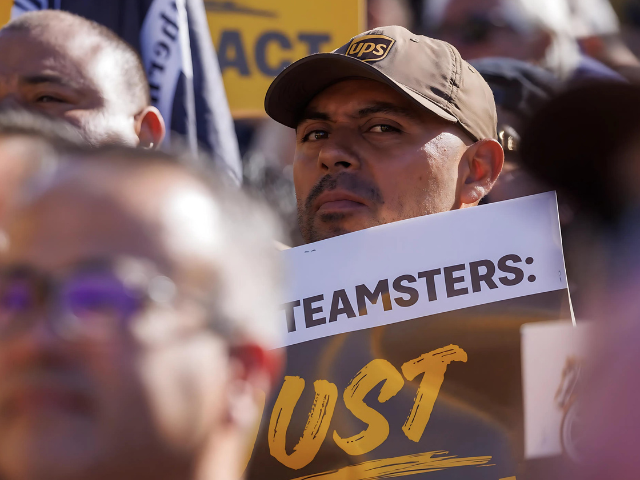In a significant shift from their historical pattern, the International Brotherhood of Teamsters has announced that it will not endorse either major party candidate in the upcoming 2024 U.S. presidential election.
The influential union, representing approximately 1.3 million members, has consistently backed the Democratic candidate in every presidential race since 2000. However, on Wednesday, the Teamsters stated that neither Democratic Vice President Kamala Harris nor Republican former President Donald Trump had made sufficient commitments to align with the union’s priorities.
Teamsters General President Sean O’Brien expressed disappointment with both candidates, saying, “Neither major candidate was able to make serious commitments to our union to ensure the interests of working people are always put before Big Business.”
Despite conducting unprecedented roundtables with both candidates, the union did not extend an endorsement. Internal polling shows Trump with a 25 percent lead over Harris among union members, yet the Teamsters concluded that neither candidate received broad support within the union.
Trump’s campaign cited the polling data to argue that the “vast majority” of Teamsters members favored him. Conversely, a spokesperson for Harris highlighted the vice president’s strong labor record and noted endorsements from several local Teamsters chapters and other large labor unions, such as the United Auto Workers (UAW).
This decision marks the first time since 1996 that the Teamsters have refrained from endorsing a presidential candidate. It reflects a growing political divide within organized labor and highlights the challenges both Trump and Harris face in securing the backing of blue-collar workers as the November 5 election approaches.
The Teamsters’ move comes amid efforts by both major political parties to garner support from organized labor, traditionally a Democratic stronghold. Trump has sought to appeal to blue-collar workers through trade policies and anti-elite rhetoric, while Harris has maintained strong ties with labor unions.
O’Brien, an outlier in the labor movement who spoke at the Republican National Convention in July, further illustrates the complex dynamics at play. His appearance, along with the Teamsters’ unsuccessful attempt to secure a speaking slot at the Democratic National Convention, underscores the evolving landscape of labor politics.



